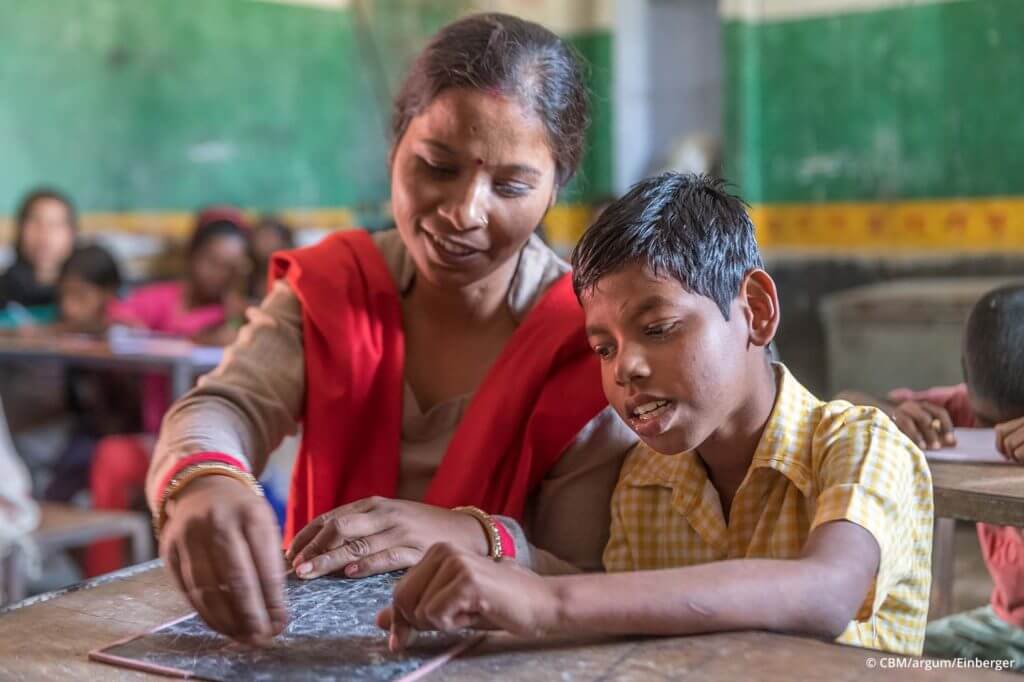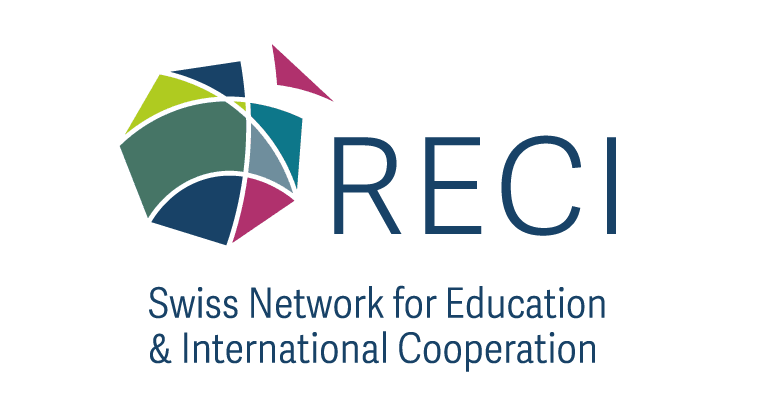Teacher Training for Quality Education

Quality education requires for teachers to be well trained and supported within the education systems. Quality education implies that teachers are well trained and supported within the education systems. It is the responsibility of the states concerned to ensure this. However, the reality is often different: in developing countries or in fragile contexts, too many teachers find themselves in front of their classrooms with no or insufficient training, or with no access to basic infrastructure or teaching materials.
This is where international cooperation comes in: its actors can support the initial and in-service training of teachers and invest resources – financial and know-how – to this end. RECI encourages dialogue between involved actors and has developed a set of recommendations that support fieldwork and policy dialogue on this issue.
Events
Working group
Recent documents
Teacher Training for Quality Education (TTQE) Recommendations
Context
The RECI TTQE Working Group developed high-quality recommendations for professional education and further training of teachers during and after the RECI Thematic Day in 2019. The TTQE Recommendations relate to the professional education and further training of teachers in the context of international cooperation, i.e., development cooperation and humanitarian aid, in view of the link that exists between the two. They primarily deal with the field of basic education – i.e. Early Childhood Development (ECD), primary and secondary education – in the formal and non-formal sectors. They mainly refer to the education of teachers and trainers (in less formal settings) and caregivers in the pedagogical work.
Objectives
With its recommendations, RECI aims to provide a useful tool for programmes in the field of professional education and further training of teachers. This tool is aimed at providers of specific programmes and focuses on the conceptual framework and methodological aspects. The recommendations are intended as an orientation for planning and implementing educational offers; it is important to note that they are assumed to be adapted to each context.
Report
In 2021, the TTQE working group submitted a questionnaire to RECI members. The aim was to see to what extent we could illustrate these recommendations based on RECI members’ activities. The report echoes these experiences for each recommendation.

Recommendations
a. Identification of teachers’ education and training needs (needs assessment), while incorporating their specific situation (prior education, gender, psychological well-being, knowledge about inclusion and specific needs of children, etc.).
b. Analyses at the level of educational systems, training chains and pedagogical approaches as well as orientation in relation to existing national / local competence frameworks (e.g. teacher competency frameworks) or curricula.
c. Coordination with other teacher education and training programmes (programmes of other NGOs, ministries of education, universities and colleges etc.). Identification of validated materials for teacher education and training and putting newly introduced materials into context.
a. Delivering shorter inputs over a longer time period instead of one-off, intensive workshops to achieve greater effectiveness.
b. Once the professional education or further training of teachers ends, provide for their ongoing follow-up to support the practical application of the knowledge and skills acquired.
a. Designing learning content that promotes reflection and analysis of everyday work experience (e.g. by means of class observation).
b. Using methods (for example active pedagogics) that teachers can apply in their lessons.
c. Combining different methods of learning (workshop, coaching, mentoring, internship, self-study, learning circles / communities of practice, online learning, game-based methods for active learning).
d. Supporting personal and autonomous further education also outside of formal learning opportunities; for example, through self-study, access to materials, tools, and exchange platforms (school clusters, teacher learning circles, etc.).
a. Cooperation and coordination with formal education authorities in the planning of further education programmes (see also recommendation 1).
b. At school and public administration level, involving those responsible for education in the planning and implementation of teacher training and further education programmes; safeguarding common objectives.
c. Strengthening of responsible persons in the education system (school directors, school inspectors etc.) and of their methodological and professional competences for long-term and improved support of teachers as well as strengthening “on the job support”.
d. Applying key methods of participatory planning (joint workshops for concept development or stakeholder analysis).
a. Combining different monitoring and evaluation methods to measure the impact of education and training programmes (pre- and post-tests of trainings, teachers’ competence assessments, class observation, student learning outcomes, etc.).
b. Using context-relevant, conflict-and gender-sensitive monitoring and assessment methods.
c. Monitoring and assessment methods measure progress in relation to context-relevant outcome indicators (e.g. national teacher competency framework, or any adjustments thereof).
d. Including the results of other national and international education and training programmes.
e. Reflecting assessment results back to target groups, responsible bodies, and other pedagogical actors (national and international).
a. Complementing education and further training measures with other interventions in the field of educational quality (e.g. in the areas of infrastructure, teaching materials, curriculum development, school governance, involvement of children, parents and community, WASH, health and nutrition, Disaster Risk Reduction (DRR).
b. Particularly in fragile contexts, interventions must be complemented by measures that, for example, strengthen the protection and security as well as the well-being of students and teachers.
c. Ensuring coherence between teacher education and training and didactic material or planning of teaching sessions.
a. Commitment within the framework of IC towards improving teacher training and further education at the national level (e.g. scaling-up local pilot projects, involving civil society in national education planning, lobbying for nationally and internationally standardized measurement of the teaching quality and progress in relation to SDG 4).
b. Requesting accreditation under national authorities for teacher education and training programmes.
c. Lobbying national and political bodies (Ministry of Education, other relevant ministries, education planning sector, education clusters, etc.) for better teacher training and further education and for improved framework conditions in performing their profession (appropriate remuneration and employment conditions, consideration of the well-being of teachers, promotion of gender equality, etc.).
d. Coordination with other actors of international cooperation and promotion of the exchange of methods, tools etc. to support the work.
a. All stakeholders in education must have access to the relevant materials and offers of further education in view to be able to use or to develop them. Access to these resources is facilitated, for example, through e-learning or blended learning.
b. The offers should promote the exchange at the international level as well as the South-South exchange.
